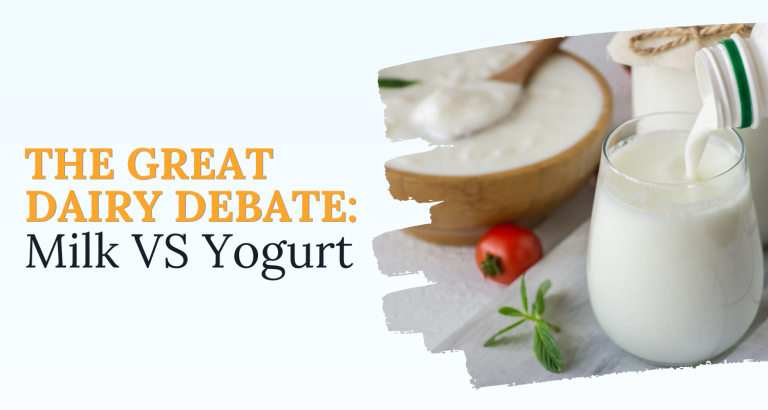8 Lesser Known Black Pepper Health Benefits

Black pepper is a staple spice in kitchens worldwide, adding its sharp and mildly spicy flavor to many dishes. Often referred to as the “king of spices,” black pepper boasts a rich history of use in Ayurvedic medicine spanning thousands of years.
Beyond its culinary uses, black pepper offers a range of surprising advantages for your well-being. In this blog, we’ll explore 8 science-backed health benefits of black pepper, its antioxidant properties, anti-inflammatory effects, potential for brain health, and much more.
1. Potent Antioxidant
In the battle against free radicals (unstable molecules that can harm your cells), black pepper emerges as a potent ally. Excess free radical damage is associated with various health issues, including inflammation, premature aging, heart disease, and certain cancers.
The key player here is piperine, a plant compound found abundantly in black pepper. Test-tube studies have indicated that piperine can help protect your cells from free radical damage.[1]
Incorporating black pepper into your diet, along with other antioxidant-rich foods, may play a crucial role in preventing or delaying the harmful effects of free radicals.
2. Anti-Inflammatory Properties
Chronic inflammation lies at the root of many health conditions, from arthritis to heart disease. Emerging evidence from laboratory studies hints at black pepper’s potential in the fight against inflammation.[2]
Although more research is needed to confirm these effects in humans, preliminary findings in animal studies show that piperine, the main active compound in black pepper, can reduce joint swelling and blood markers of inflammation in conditions like arthritis and asthma.[3]
3. Brain Health Booster
Animal studies have demonstrated that piperine, may improve cognitive function and potentially help alleviate symptoms associated with degenerative brain conditions like Alzheimer’s and Parkinson’s disease.[4]
Rats with Alzheimer’s who were given piperine displayed improved memory and problem-solving abilities. It’s an exciting area of research, but human studies are needed to validate these findings.
4. Blood Sugar Control
Maintaining stable blood sugar levels is crucial for overall health; black pepper might offer some support. Studies in rats have shown that black pepper extract can lead to a smaller spike in blood sugar levels after consuming glucose.[5]
Furthermore, in a study involving overweight individuals, a piperine supplement significantly improved insulin sensitivity.[6] However, further research is required to determine whether black pepper alone can produce the same effects in humans.
5. Cholesterol Management
Elevated cholesterol levels are a known risk factor for heart disease, the leading cause of death worldwide. During a 42-day study conducted in 2016, rats administered a high-fat diet along with a black pepper extract demonstrated reduced blood cholesterol levels, including LDL (bad) cholesterol in their bodies.[7]
Additionally, black pepper is believed to enhance the absorption of dietary supplements known for their cholesterol-lowering potential, such as turmeric and red yeast rice. This increased absorption could offer an added advantage in managing cholesterol levels.
6. Potential Cancer-Fighting Properties
While human trials are yet to be conducted, test-tube studies have provided intriguing insights into black pepper’s potential in combating cancer.[8] Piperine, the active compound in black pepper, has demonstrated the ability to slow the replication of breast, prostate, and colon cancer cells and even induce cancer cell death.
In one 2014 study, piperine enhanced the efficacy of traditional treatment for triple-negative breast cancer.[9] Furthermore, piperine has shown promise in reversing multidrug resistance in cancer cells, a significant challenge in chemotherapy. These findings hold significant potential, but further research is imperative.
7. Nutrient Absorption Enhancement
Beyond its role as a flavorful spice, black pepper can significantly boost the absorption of essential nutrients. It’s been found to enhance the uptake of nutrients like calcium and selenium, along with beneficial compounds found in green tea and turmeric.[10]
This makes it a fantastic addition to your diet if you want to maximize the health benefits of other nutrient-rich foods. ls.
8. Promotes Gut Health
In recent years, researchers have uncovered intriguing potential in black pepper when it comes to promoting gut health and addressing various health concerns. The balance of your gut microbiome, the community of bacteria in your digestive system, plays a pivotal role in overall health. An imbalance has been linked to immune system function, mood disorders, chronic diseases, and more.
Early research suggests that black pepper may act as a prebiotic, encouraging the growth of beneficial bacteria in your gut.[11] This means consuming black pepper could contribute to a healthier and more balanced gut microbiome.
Conclusion
Black pepper’s surprising health benefits make it a valuable addition to your culinary arsenal. This versatile spice can effortlessly elevate the flavor of various dishes, including cooked vegetables, pasta, meats, fish, and poultry. It also pairs exceptionally well with other healthful seasonings, making it a seamless inclusion in your daily cooking routine.
References
- Hussain T, Tan B, Yin Y, Blachier F, Tossou MC, Rahu N. Oxidative Stress and Inflammation: What Polyphenols Can Do for Us? Oxid Med Cell Longev. 2016;2016:7432797. doi: 10.1155/2016/7432797. Epub 2016 Sep 22.
- Kunnumakkara AB, Sailo BL, Banik K, Harsha C, Prasad S, Gupta SC, Bharti AC, Aggarwal BB. Chronic diseases, inflammation, and spices: how are they linked? J Transl Med. 2018 Jan 25;16(1):14. doi: 10.1186/s12967-018-1381-2. PMID: 29370858;
- Bang JS, Oh DH, Choi HM, Sur BJ, Lim SJ, Kim JY, Yang HI, Yoo MC, Hahm DH, Kim KS. Anti-inflammatory and antiarthritic effects of piperine in human interleukin 1beta-stimulated fibroblast-like synoviocytes and in rat arthritis models. Arthritis Res Ther. 2009;11(2):R49. doi: 10.1186/ar2662. Epub 2009 Mar 30.
- Hritcu L, Noumedem JA, Cioanca O, Hancianu M, Kuete V, Mihasan M. Methanolic extract of Piper nigrum fruits improves memory impairment by decreasing brain oxidative stress in amyloid beta(1-42) rat model of Alzheimer’s disease. Cell Mol Neurobiol. 2014 Apr;34(3):437-49. doi: 10.1007/s10571-014-0028-y. Epub 2014 Jan 19.
- Maeda A, Shirao T, Shirasaya D, Yoshioka Y, Yamashita Y, Akagawa M, Ashida H. Piperine Promotes Glucose Uptake through ROS-Dependent Activation of the CAMKK/AMPK Signaling Pathway in Skeletal Muscle. Mol Nutr Food Res. 2018 Jun;62(11):e1800086. doi: 10.1002/mnfr.201800086. Epub 2018 May 17.
- Rondanelli M, Opizzi A, Perna S, Faliva M, Solerte SB, Fioravanti M, Klersy C, Cava E, Paolini M, Scavone L, Ceccarelli P, Castellaneta E, Savina C, Donini LM. Improvement in insulin resistance and favourable changes in plasma inflammatory adipokines after weight loss associated with two months’ consumption of a combination of bioactive food ingredients in overweight subjects. Endocrine. 2013 Oct;44(2):391-401. doi: 10.1007/s12020-012-9863-0. Epub 2012 Dec 28. Erratum in: Endocrine. 2013 Oct.
- Parim B, Harishankar N, Balaji M, Pothana S, Sajjalaguddam RR. Effects of Piper nigrum extracts: Restorative perspectives of high-fat diet-induced changes on lipid profile, body composition, and hormones in Sprague-Dawley rats. Pharm Biol. 2015;53(9):1318-28. doi: 10.3109/13880209.2014.980585.
- Ba Y, Malhotra A. Potential of piperine in modulation of voltage-gated K+ current and its influences on cell cycle arrest and apoptosis in human prostate cancer cells. Eur Rev Med Pharmacol Sci. 2018 Dec;22(24):8999-9011. doi: 10.26355/eurrev_201812_16671.
- Abdelhamed S, Yokoyama S, Refaat A, Ogura K, Yagita H, Awale S, Saiki I. Piperine enhances the efficacy of TRAIL-based therapy for triple-negative breast cancer cells. Anticancer Res. 2014 Apr;34(4):1893-9.
- Butt MS, Pasha I, Sultan MT, Randhawa MA, Saeed F, Ahmed W. Black pepper and health claims: a comprehensive treatise. Crit Rev Food Sci Nutr. 2013;53(9):875-86. doi: 10.1080/10408398.2011.571799.
- Lu QY, Summanen PH, Lee RP, Huang J, Henning SM, Heber D, Finegold SM, Li Z. Prebiotic Potential and Chemical Composition of Seven Culinary Spice Extracts. J Food Sci. 2017 Aug;82(8):1807-1813. doi: 10.1111/1750-3841.13792. Epub 2017 Jul 5.






